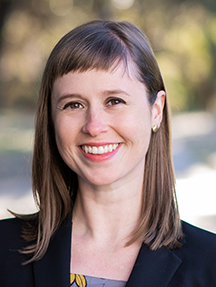• By Chloe Latham Sikes, Ph.D., & Aurelio M. Montemayor, M.Ed. • IDRA Newsletter • May 2022 •




To help to pull back the curtain on Texas school finance, IDRA partnered with ARISE Adelante – a community-based organization that supports women and youth in the Texas Rio Grande Valley – to conduct a series of train-the-trainer sessions for volunteers. This article outlines how we worked together to make school finance information accessible and actionable.
A Family Leadership Approach to School Finance Training
IDRA’s model of family engagement is based on several core tenets of family leadership in education (IDRA, 2017). Our local advocacy groups, called Education CAFEs, support this approach through authentic community engagement with schools (IDRA, 2020).
In the Texas Lower Rio Grande Valley, ARISE Adelante formed the first IDRA Education CAFE over a decade ago and engaged its members to identify pressing issues in schools each year and develop the group’s collective response to effect change.
Over the years, ARISE Adelante families have met with school principals, superintendents, and school boards about issues of concern like access to college, teaching quality and digital inclusion. And several provided testimony and comments to the Texas legislature.
Due to IDRA’s founding legacy to address issues of inequitable school funding, ARISE Adelante leaders requested a series of training sessions, in Spanish, on the basics of how public schools are financed and the reasons for the imbalance of resources among schools. These sessions were part of a grant-funded technical assistance project between IDRA and RGV FOCUS.
The School Finance 101 Series
In the first session, we reviewed the historical context for Texas school funding and IDRA’s engagement over the past 49 years to advocate greater state contribution for public schools. The conversation began by distinguishing the U.S. system of school funding as largely based in state-created systems that blend local and state funding from the mostly federally-funded public education system in Mexico.
IDRA facilitators walked through key court cases that have shaped the school funding system in Texas, including Salvatierra v. Del Rio, Delgado v. Bastrop, San Antonio ISD v. Rodríguez and the Edgewood cases (Cárdenas, 1997). These cases hinged on redressing racial and socioeconomic discrimination in the school finance system, where districts serving Black and Latino students and students from households with low incomes received far less funding than whiter and more affluent school districts. Participants looked at present-day differences in school districts’ state and local funding shares using IDRA’s School Finance Dashboard.
Following the structural overview, the second session examined the sources of inequities in the tax structure for schools. Texas overly relies on local property taxes and, without more substantial state investment, school districts with lower property wealth face a higher tax burden than their high-wealth neighboring districts.
The third presentation focused on how ARISE Adelante members could track the program expenditures in their local school districts. We shared a comparison website so that participants could train others to look up and understand their districts’ expenditures. The website breaks down expenditures by revenue sources (state, local, federal), operational expenses (staffing, food and transportation, academic programs, etc.) and instructional programs (basic education, bilingual programs, etc.) (TEA, 2022).
The fourth session served as an advocacy brainstorming workshop for members to discuss what they had learned and next steps for action. Participants overwhelmingly expressed interest in becoming more involved with their local school boards to advocate greater family engagement in school funding decisions, especially around funding for programs that support bilingual education and college readiness for students.
To extend the train-the-trainer resources on school funding, ARISE Adelante leaders coordinated two additional sessions that offered a digest of the original four-part series. These are viewable online (https://idra.news/ARISEsf101). The six total sessions support their members to understand Texas school funding, communicate key points to the broader membership and determine how to take action in their local communities and at the state level.
Five Tips for School Funding Training for Family Advocates
Equitable educational policy and advocacy requires that family advocates have the tools to develop their own policy agendas. Based on ARISE Adelante participants’ questions, comments and feedback, we present below five tips for school funding training sessions for family advocates.
- Use a train-the-trainer design. Participants can then facilitate conversations among the broader membership as they craft their own advocacy agendas together.
- Keep it clear and accessible. Graphics and dashboards help participants learn complicated issues and enable them to share with others.
- Make it relatable. Use concrete, everyday examples relevant to participants’ experiences.
- Tell the story step-by-step. Review previous content before diving into new material.
- Center family advocates to guide the conversation. Check in regularly to ensure that each session meets the interests and needs of the participants and accounts for feedback from previous sessions.
Throughout the series, IDRA and ARISE Adelante shared the recognition that family and community members are leaders for change in their schools. One participant shared, “Si no estamos presentes, no estamos enteradas” [“If we are not present, we are not aware”].
Resources
Cárdenas, J.A. (1997). Texas School Finance Reform: An IDRA Perspective. IDRA.
IDRA. (2022b). Community Advocacy Training on School Funding in Texas, videos. IDRA.
Montemayor, A.M. (May 2017). IDRA Education CAFE – A Structure for Families Transforming Schools in their Communities. IDRA Newsletter.
TEA. (2022). Revenue Sources and Expenditures Categories Bar Charts. Texas Education Agency.
Chloe Latham Sikes, Ph.D., is IDRA’s deputy director of policy. Comments and questions may be directed to her via e-mail at chloe.sikes@idra.org. Aurelio M. Montemayor, M.Ed., is IDRA’s family engagement coordinator and directs the IDRA Education CAFE network. Comments and questions may be directed to him via email at aurelio.montemayor@idra.org.
[©2022, IDRA. This article originally appeared in the May 2022 IDRA Newsletter by the Intercultural Development Research Association. Permission to reproduce this article is granted provided the article is reprinted in its entirety and proper credit is given to IDRA and the author.]


